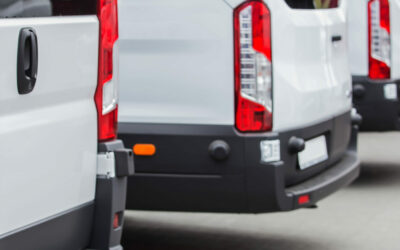In the UK, most vans have a lower speed limit than cars. Why? It’s most likely for two reasons. First, vans almost always have higher emissions than cars. Limiting vans’ speeds could be a move to reduce emissions on the whole.
Secondly, and the main reason why there are different speed limits for vans, is that vans are bigger and more powerful than most other vehicles on the road. If a van’s involved in a high speed crash, it’s going to cause a lot of damage. Limiting vans’ speeds makes the roads a little safer for everyone.
Speed limits are there for a reason. Break the limit, and you could face a fine of up to £2,500. You could also get points on your licence. And if your speeding is excessive, you could go to court, or even get banned from driving. If you drive for a living, this will really cause you problems. So don’t risk it! Learn the UK speed limits for vans, and respect them at all times.
What is the National Speed Limit in the UK?
The national speed limit in the UK all depends on what type of vehicle you drive.
For cars, motorcycles, dual-purpose vehicles and “car-derived” vans – the UK national speed limit is:
- Built up area – 30 mph (or 48 km/h)
- Single carriageway – 60 mph (or 96 km/h)
- Dual carriageway – 70 mph (or 112 km/h)
- Motorway – 70 mph (or 112 km/h)
For this class of vehicle, the national speed limit is different if you’re towing a caravan or a trailer:
- Built up area – 30 mph (or 48 km/h)
- Single carriageway – 50 mph (or 80 km/h)
- Dual carriageway – 60 mph (or 96 km/h)
- Motorway – 60 mph (or 96 km/h)
Is There a Different National Speed Limit for Vans?
There is a different national speed limit for vans, and the law differs depending on what type of van you drive.
The government classes most vans as “goods vehicles”, and they place each good vehicle in a class based on its weight. You must follow the speed limit for all goods vehicles that are in the same weight class as your van.
As we saw above, small vans – that is, panel vans, pick-up trucks, and cars that have been modified to carry goods – fall in the same class as other cars on the road. You can read more about the government’s definition of dual-purpose vehicles and “car-derived” vans here.
If your van has a maximum laden weight of up to 7.5 tonnes the following speed limits apply:
- Built up area – 30 mph (or 48 km/h)
- Single carriageway – 50 mph (or 80 km/h)
- Dual carriageway – 60 mph (or 96 km/h)
- Motorway – 70 mph (or 112 km/h) – but if your vehicle’s articulated or pulling a trailer, it’s limited to 60 mph (or 96 km/h)
If your van has a maximum laden weight that’s more than 7.5 tonnes, in England and Wales the national speed limits are:
- Built up area – 30 mph (or 48 km/h)
- Single carriageway – 50 mph (or 80 km/h)
- Dual carriageway – 60 mph (or 96 km/h)
- Motorway – 60 mph (or 96 km/h)
In Scotland, the national speed limits for vans is largely the same as it is in England and Wales. Just note the difference for driving on dual carriageways:
- Built up area – 30 mph (or 48 km/h)
- Single carriageway – 50 mph (or 80 km/h)
- Dual carriageway – 50 mph (or 80 km/h)
- Motorway – 60 mph (or 96 km/h)
There are further rules for buses, coaches, minibuses, motorhomes and motorcaravans. You can read the full guide to the national speed limit for vans and other larger vehicles on the government’s website.
Don’t Get Caught Speeding!
Make sure you are aware of the above speed limits and which apply to your vehicle. If you get caught speeding, you’ll face some severe penalties.
One last thing – remember that it’s also illegal to drive without insurance. Make sure you get the right cover for your van driving needs. We specialise in giving van drivers like you comprehensive cover at a price you can afford. Get in touch for more information.




